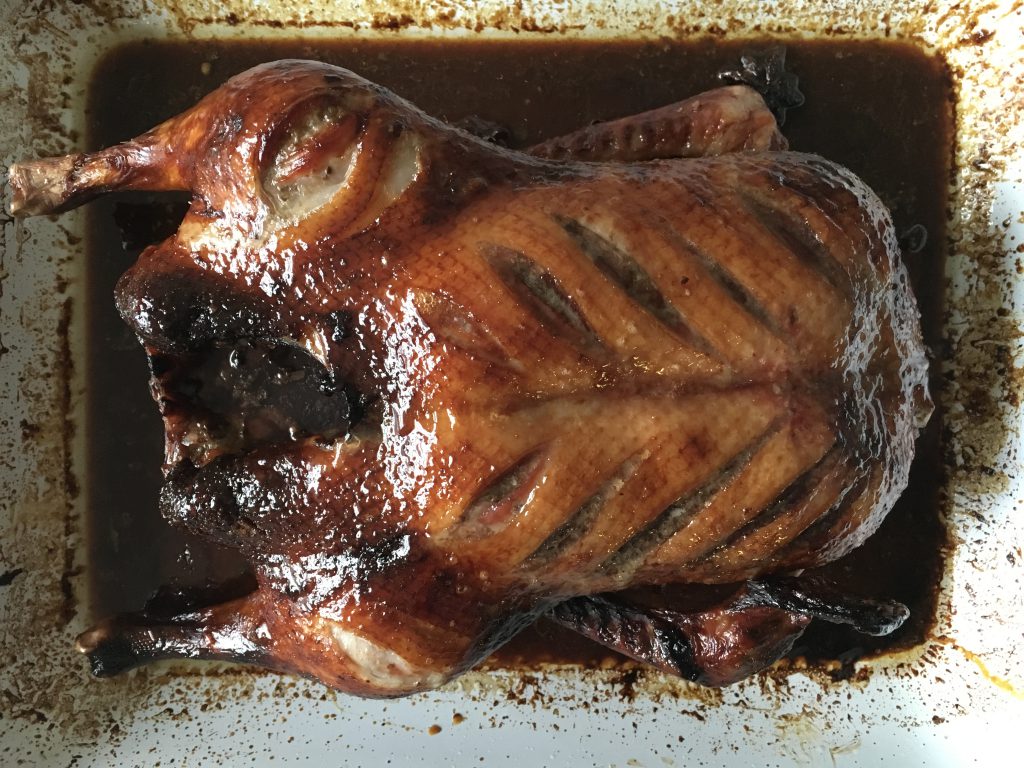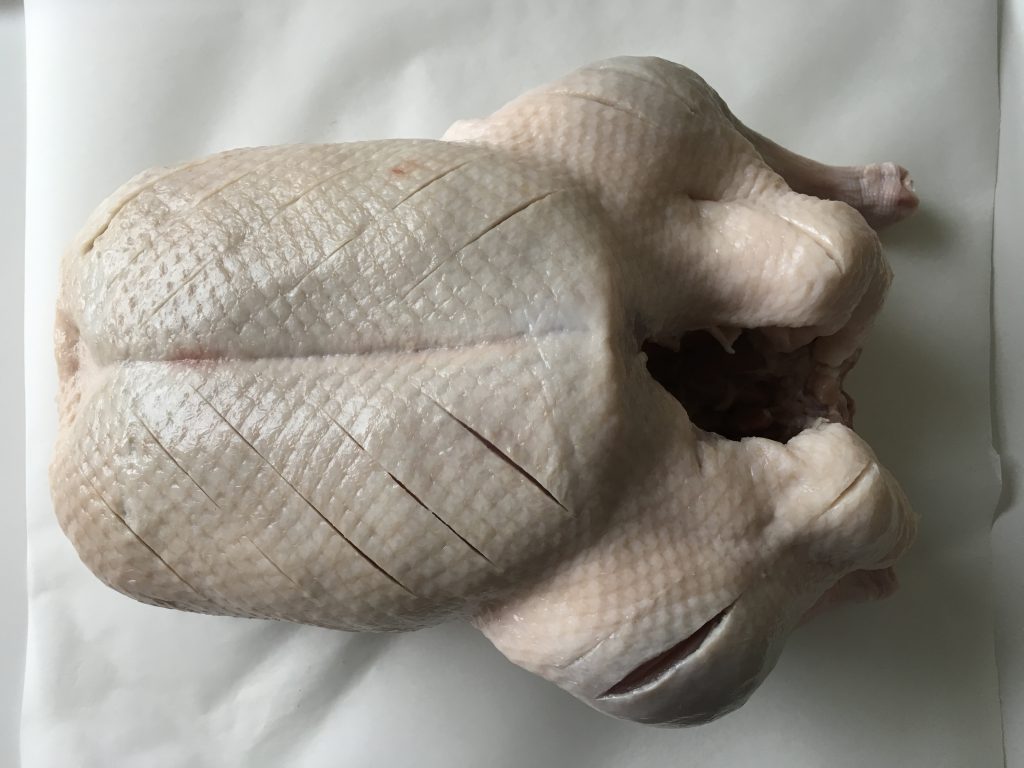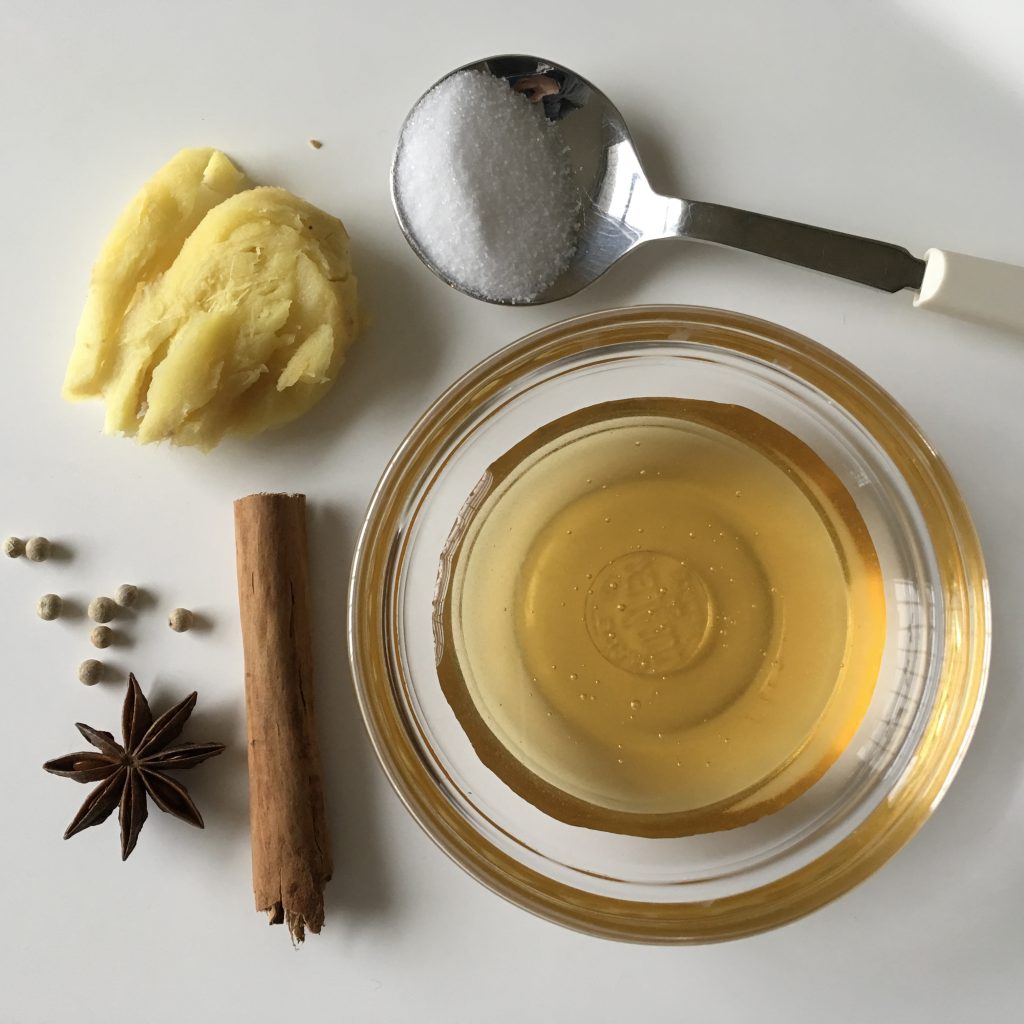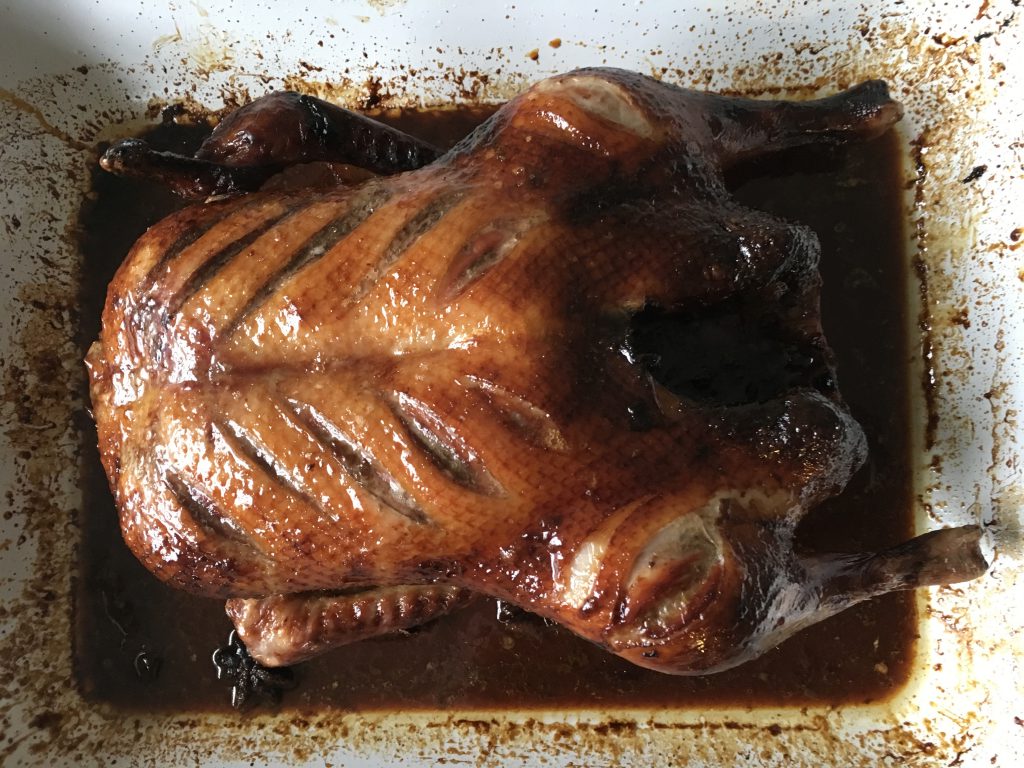This is the kind of dish you want to make on a cold, dull and wet Sunday two weeks into the new year.

The things is…we are now in mid-February.
In truth there are a dozen recipes to write up, but this blog exists on the understanding that I only write when I have any spare time. Otherwise the writing becomes a monster needing to be fed on a regular basis. If I need to feed it then in essence it is controlling me.
The book I re-read most is Timothy Keller’s Counterfeit Gods*. It is also the book I give away most. In the inside cover there is a helpful explanation of the book’s title:
Family, work, relationships, money – we all make different choices about what’s important to us in life. The problem is that all too easily we can find ourselves fixed on one thing to the exclusion of all else; the subtle temptation is always to take something that is good in itself and elevate it above all other things in the search for security and meaning. In doing so we turn even these good things into something unhelpful, narrowing our focus and stunting our development as human beings. Though we shrink from calling it idolatry, it is nonetheless true that we have made these things into our gods.
This gives me a perspective on the importance I place on different aspects of my life. It helps prevent certain areas from spiralling out of control.
Back to the duck. This is an easy recipe which only requires you to baste it regularly over the time it is in the oven. This renders an anaemic pale-skinned duck into a most glorious brown-skinned treat.
For the Duck:
1 whole duck, cleaned and gutted
1 stick cinnamon
1 star anise
8 white peppercorns
40 g fresh ginger, peeled and crushed
Zest and juice of two oranges
8 – 10 tablespoons honey
2 teaspoons fine sea salt
250 ml water


How to Make:
Preheat the oven to 170°C/ 325°F/ Gas 3.
Place the duck in a roasting tin, along with the cinnamon, star anise, peppercorns and ginger. Pour in the water.
In order to release fat from the duck skin while it is roasting, lightly score a few lines on the duck breast and legs with a sharp knife.
Rub the salt all over the duck. Spoon over the honey, making sure it covers the entire duck.
Roast the duck for an initial 30 minutes, then remove it from the oven and baste with the juices in the roasting tray.
Return the duck to the oven for another 30 minutes, then remove and baste again. If fat has collected in the tin, tip it to one side and use a spoon to skim off as much as you can.
Continue to roast the duck for another hour, basting it every 20 minutes during this time.
Remove the fat again, then baste the duck with the juices and return to the oven for the final 30 minutes. If you have the time and enthusiasm, continue to baste the duck every 10 minutes.
The duck would have been slow-roasting for a total of 2½ hours. Remove it from the tin, place on a large plate and cover with foil. Leave to rest while you finish off the sauce.
There will be a thick layer of glaze at the bottom of the pan. Add the orange juice and using a spatula or small whisk, give all the collected juices a good stir. Skim off the fat and taste to see if it needs a bit more honey to sweeten it.

To serve, first remove the duck legs then cut it into separate drumsticks and thighs. Remove the duck breasts off the breastbone and slice into pieces. Assuming you are feeding four, the idea is that each person gets some breast meat and then either a drumstick or a thigh.
In my younger days I used to perform a kind of cosmetic surgery on whole ducks by peeling the flesh away from the entire carcass. This left a whole boned duck into which I stuffed glutinous rice and other ‘treasures’ like roasted chestnuts and quail eggs. I don’t have the time anymore to ‘undress’ the duck in this way, so the rice is now pan-fried separately. The recipe is in the next post.
* Counterfeit Gods by Timothy Keller, published by Hodder and Stoughton, ISBN 978-0-340-99507-5.